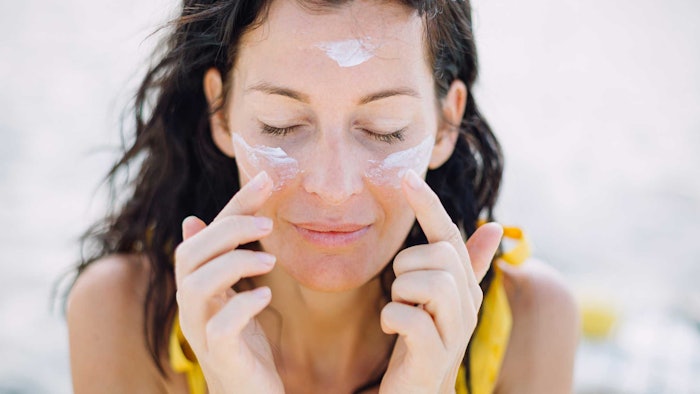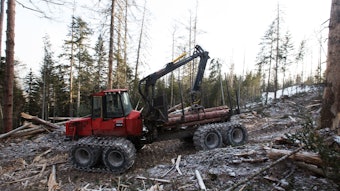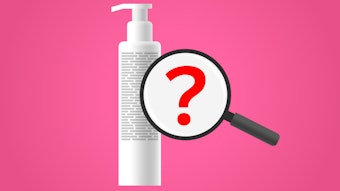
DSM-Firmenich has submitted the "first-ever" Over-the-Counter Monograph Order Request (OMOR) Tier 1 application to the U.S. Food Administration (FDA) in hopes of earning the company's Parsol Shield (INCI: Bemotrizinol) sunscreen active a generally recognized as safe and effective (GRASE) designation. Achieving such would mean inclusion in the U.S. over-the-counter (OTC) Sunscreen Monograph — and the first new sunscreen added in nearly 25 years.
Log in to view the full article
DSM-Firmenich has submitted the "first-ever" Over-the-Counter Monograph Order Request (OMOR) Tier 1 application to the U.S. Food Administration (FDA) in hopes of earning the company's Parsol Shield (INCI: Bemotrizinol) sunscreen active a generally recognized as safe and effective (GRASE) designation. Achieving such would mean inclusion in the U.S. over-the-counter (OTC) Sunscreen Monograph — and the first new sunscreen added in nearly 25 years.
Per the company, Parsol Shield is approved in most regions worldwide and has been used safely since 2000. It will also now be the first sunscreen active to undergo the FDA's review following updated safety and efficacy standards. "This represents a landmark moment for both the skin care and sun care industries in the U.S.," the company expressed.
Setting New Standards for Broad-spectrum Protection
Parsol Shield provides broad-spectrum protection against both UVA and UVB radiation. According to DSM-Firmenich, it is renowned for its high photostability and superior efficacy at lower concentrations, compared with other sunscreen actives. If approved, not only would Parsol Shield become the first new sunscreen added to the monograph in two decades, it would set a new standard for sun protection and significantly enhance efforts to prevent skin cancer, the company reports.
“This OMOR submission marks a monumental step in DSM-Firmenich’s commitment to driving innovation in sun care, consumer health and sustainability,” said Parand Salmassinia, president of beauty and care at DSM-Firmenich. “Parsol Shield has been safely used worldwide for over 20 years, and we are proud to lead the introduction of this proven technology to U.S. consumers. If approved, it will elevate the standard of sun protection and play a vital role in public health and skin cancer prevention.”
Indeed, the importance of using sun protection is getting through to consumers. According to Fortune Business Insights, the global market for UV filters is projected to grow from US $334.71 million in 2023 to $482.24 million by 2030 (a CAGR of 5.4%). The source also noted that organic UV filters like bemotrizinol held the largest market share in 2022, although mineral (inorganic) sunscreens are expected to show significant growth.
What GRASE, Monograph Inclusion Means for U.S. Sun Care
According to DSM-Firmenich, if the ingredient is deemed to meet GRASE criteria, bemotrizinol (BEMT) will be incorporated into the U.S. OTC sunscreen monograph, which would allow its broader use in sunscreen formulations without the need for additional premarket approval. As such, the company assures it is dedicated to collaborating closely with the FDA to provide all required scientific and clinical data supporting bemotrizinol’s safety and effectiveness.
A successful GRASE determination would make Parsol Shield available to U.S. consumers, delivering advanced sun protection technology that is already accessible in markets around the globe, per the company. The application was submitted on Sept. 23, 2024, and the FDA now has 17.5 months to review the active and make a determination.
"We’ve been working on this FDA submission for bemotrizinol for quite some time, so reaching this stage is really exciting for us," expresses Carl D’Ruiz, senior business development manager for beauty and care, North America, at the company. "BEMT provides strong and efficient UV protection, and getting it approved here in the U.S. would mean better options for sun safety and skin cancer prevention. We’re looking forward to offering Americans more modern sunscreen choices that are already trusted and used around the world."
Another industry expert, who wished to remain anonymous, noted, "Parsol Shield is known for its broad-spectrum UV protection, which includes both UVB and UVA rays. It is a newer generation UV filter that is often favored for its photostability and compatibility with other sunscreen ingredients, enhancing the overall protection profile of sunscreen formulations. ... However, it’s important to note that while Parsol Shield has these advantages, there may be considerations to keep in mind compared to conventional sunscreens, such as formulation challenges or cost implications."










